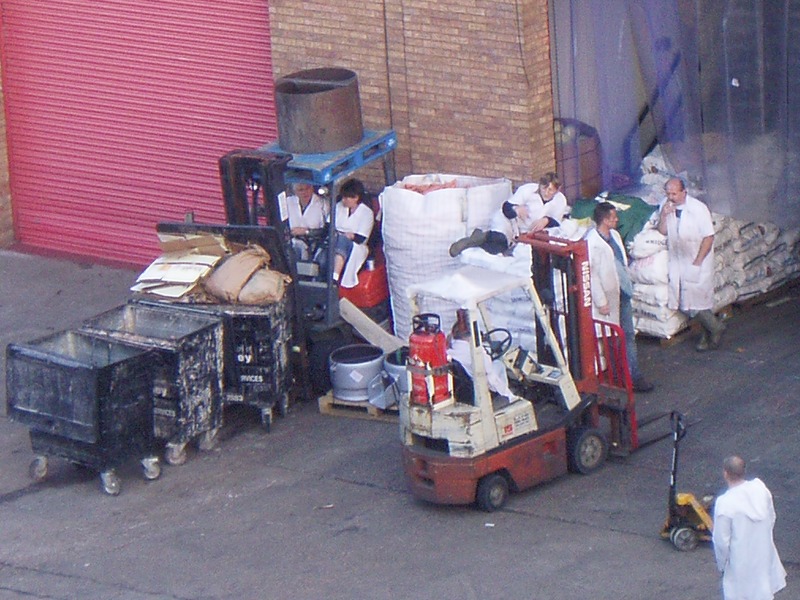ENVIRONMENTAL AND HUMAN RIGHTS CONCERN GROUPS UNITE

Monday 16th April
Venue: Amnesty International UK Human Rights Action Centre, 17-25 New Inn Yard, London EC2A 3EA
Time: Launch event 7pm-9pm
On Monday 16th of April, a coalition of environmental and human rights groups are unveiling a new online campaign, Greenwash Gold 2012, focusing on the ‘worst’ London Olympic sponsors. this is sure to ramp up the pressure on LOCOG after the fiasco surrounding Dow Chemical’s sponsorship of the London Games as further groups look set to unite in opposition to various London Games sponsors.
Three controversial Olympic sponsors, Dow Chemicals, BP and Rio Tinto are the targets of the new online campaign. Each has been made the subject of a short animated film (by various award-winning animators) and viewers will be encouraged to visit the ‘GreenwashGold’ website where they will be able to vote for the worst corporate sponsor.
During the Games, in July, the organisers will award medals to these companies based on the results of the public voting.
Members of communities impacted by the Olympic sponsors, from all over the world, have come together for the launch event on the 16th to criticise the companies, including:
A survivor of the Bhopal disaster who witnessed first-hand the devastation caused by the gas leak and campaigns tirelessly to highlight Dow Chemical’s liability towards the ongoing chemical contamination.
A representative from the Gulf Coast where communities are still dealing with the environmental devastation of BP’s catastrophic oil spill.
An organiser with indigenous communities in Canada fighting BP’s controversial tar sands operations.
A mother from Utah fighting against the life-threatening air pollution levels caused by one of the mines from which Rio Tinto is providing the metal for the Olympic metals.
A community representative from Mongolia where another Rio Tinto mine proving medals metal is accused of exploiting scarce water resources in a desert region.
The launch on the 16th will be chaired by Meredith Alexander, the ex Olympics ‘ethics tsar’ who resigned her role on, the Commission for a Sustainable London 2012, over controversies surrounding Olympic sponsorship.
Colin Toogood, Bhopal Medical Appeal Media Spokesman said: “The Dow Chemical Company are the owners of the Union Carbide Corporation wanted, in India, on the criminal charge of culpable homicide for their role in their Bhopal Disaster. The Bhopal disaster site has never been cleaned up and highly toxic chemicals are now found in the drinking water of over 30,000 poor people. If we can clean up the London Olympic site in readiness for the games, why can’t Dow take responsibility for cleaning up Bhopal.”
Richard Solly, coordinator of the London Mining Network said: “Some of the most disreputable companies in the world are sponsoring the Olympics. Rio Tinto, Dow and BP all have appalling environmental and human rights records, and they are being allowed to greenwash their tarnished reputations by association with the 2012 games. Greenwash Gold 2012 is providing people with an opportunity to name and shame the worst corporate sponsor of London Olympics.”
Jess Worth, from the UK Tar Sands Network, said: “BP has bought itself the prestigious title of London 2012 ‘Sustainability Partner’. But this is dangerous greenwash. BP is one of the least sustainable companies on earth, responsible for the Deepwater Horizon disaster and the extraction of highly-polluting tar sands. Its entire business is geared towards keeping the world addicted to fossil fuels and driving us towards uncontrollable climate change. And the Olympics are helping BP get away with it!”
Cherise Udell, the founder of Utah Moms for Clean Air, said: “I was delighted to learn that the 2012 Olympic committee was aiming for the greenest Olympics ever. Then I heard that Rio Tinto metal from our controversial Utah mine would be used to make the medals. In Utah, Rio Tinto are the number one emitter of toxins known to cause harm to human health. Every year, between 1000 and 2000 Utahns die prematurely due to chronic air pollution and Rio Tinto’s Bingham mine is responsible for about 30% of this.”
Launch Event Facebook page:
GreenwashGold website goes live with animations from 16th April.
For more information/comment, contact
Colin Toogood, Bhopal Medical Appeal,
ColinToogood@bhopal.org, 07798 845074
Farah Edwards-Khan was born and raised in Bhopal and was ten years old at the time of the disaster. Farah was lucky enough to be in a part of the city that was not too badly hit by the gas, during the night of the main disaster, but witnessed the unfolding tragedy first-hand the following morning as bodies lined the streets of Bhopal
Colin Toogood has worked for the BMA for three and a half years after a change of life decision for this erstwhile DJ. Colin decided he needed something more worthwhile to do with his time and feels very lucky to have found such a worthwhile cause to be working for.
Cherise Udell, the founder of Utah Moms for Clean Air, is a mother of two, and a resident of Salt Lake City. Cherise has a B.A. in Cultural Anthropology from U.C. Berkeley and is nearly finished with her M.S. in Environmental Health and Social Ecology at Yale University.
Zanaa Jurmed is the Director of the Center for Citizens’ Alliance and Vice Chair of the Tripartite National Committee on Resolving disputes mining and public property issues. She is also the Chair of the Board of the Oyu Tolgoi Watch, a non governmental organization in Mongolia. She is the founding member of the number of Women’s and Human Rights NGOs since 1992, member of the Human Rights group to the Mongolia President and non-staff member of the Mongolian National Human Right Commission.
Derrick Evans is a sixth-generation native of Turkey Creek, a Mississippi Gulf Coast community settled by freed slaves in 1866. Derrick founded Turkey Creek Community Initiatives to promote sustainable local development that is both environmentally and culturally sensitive. Since Hurricane Katrina and the devastating BP Deepwater Horizon spill he has been a tireless organizer and advocate for the needs and rights of coastal communities, and is an advisor to the Gulf Coast Fund.
Clayton Thomas-Muller, of the Mathias Colomb Cree Nation also known as Pukatawagan in Northern Manitoba, Canada, is an activist for Indigenous rights and environmental justice. Clayton is the tar sands campaign organizer for the Indigenous Environmental Network and works with grassroots indigenous communities to defend against the sprawling infrastructure that includes pipelines, refineries and extraction associated with the tar sands, the largest and most destructive industrial development in the history of mankind.
Click London Olympics for more blogs
See our Olympics project pages for more information and videos.
Or visit PlanA our general blog on urbanism, planning and architecture.
Spectacle homepage
Befriend Spectacle.Docs on Facebook
Follow SpectacleMedia on Twitter


